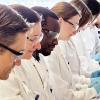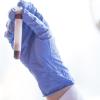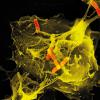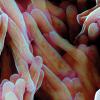In a preclinical breakthrough, researchers have developed a technology that may one day eliminate the need for immunosuppressive drugs in transplant patients.

Through genetic modification of donor cells, they created transplants that persisted long-term in mice, without the need for immune suppression.
The findings raise hopes that a similar strategy could be employed in human patients, making transplantation safer and more widely available.
“Our work paves the way for an ‘off-the-shelf’ supply of cells for therapies that could be safely given to many patients,” said Andras Nagy, a senior investigator from Sinai Health in Canada.
Immune rejection poses a major challenge in donor cell therapy, said Nagy, a stem cell pioneer and Canada Research Chair in Stem Cells and Regeneration. The recipient’s immune system recognises the transplanted cells as foreign invaders and launches an attack, leading to rejection.
“Transplant and cell therapy patients are required to take immunosuppressive drugs, sometimes for the rest of their lives, to prevent their bodies from rejecting the transplant,” said Nagy. The extended use of these drugs can lead to serious health issues including recurring infections, and an elevated cancer risk.
Scientists worldwide have been exploring various solutions, including creating therapeutic cells from the patient’s own cells or encapsulating donor cells in inorganic material for protection.
Image credit | iStock




